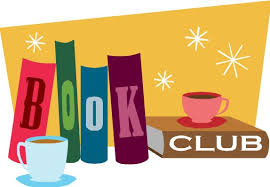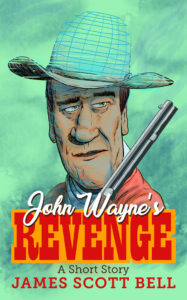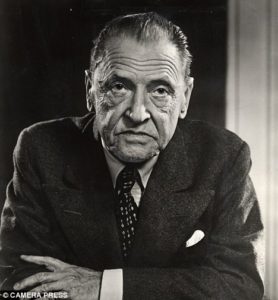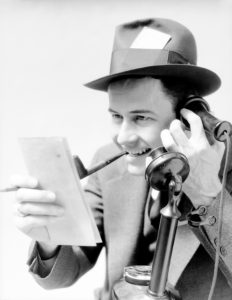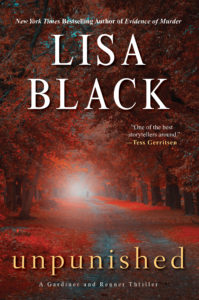By PJ Parrish
I’m up to my armpits in cardboard boxes this week, readying for our move to Tallahassee. I’m tryting to do so many things at once to make this move a success. I’n trying to pack up in time, trying to work out how I can move my Bazaar Velvet rug without staining it, trying to get my mail re-directed, I’m doing all these things so I’m not rushing closer to the time! I have 16 boxes of books under my piano, and I haven’t even started in on the books still on the shelves. We’re also trying to sort out adjustments to the staircase we need to make. We have been looking on Pear Stairs as we feel the new house could do with having a more space-conscious staircase. So yeah, it has been manic! What better time to stop and read another story to de-stress? This post might be a little long because I like the submission and think the premise has potential. A caveat, dear brave writer: The better you are, the harder I am on you! My comments follow with my Track Change edits, but please weigh in, TKZ folks! A tip of the hat to my sister Kelly who helped me with this via Skype. And thank you, writer, for allowing us all to learn from your work.
Life-Line to a Killer
Blake Ford grinned as he watched his wife on his laptop web cam from his motel room. His heart thumped in his chest with anticipation. Laura, the love of his life, unbuttoned her blouse and performed a tantalizing striptease dance. She slid the blouse off, let it drop to the floor and turned slowly to give him a full view of her black lace bra.
“Your turn,” she said.
“Is that how you’re going to play it tonight?” he said.
“Yes. I’ve changed the rules. If I lose a hand and have to strip, you have to remove a piece of clothing, too.”
“I like it. It’ll make the game go faster.”
She laughed. “I know. You’re impatient.”
She leaned toward her computer that he saw was set up on the desk in the living room of their home and pressed her lips on the screen. A kiss for him.
Blake stood up and performed his best rendition of a Chippendale dancer. He peeled off his shirt and exposed a strong toned physique. His wife whooped and clapped with delight. Encouraged, he whipped the shirt over his head and flung it across the motel room and struck a pose.
“I wish you were here,” she said.
“Maybe, next time you can tag along with me on the road.”
He saw her hesitation.
“We’ve talked about this. I have a career, too. I thought you were okay with our date nights?”
“I am. I was just saying.” What he didn’t say was how difficult it was for him to be away from her so often. “I could get a different job that would keep me home.”
Was that panic he saw on her face?
“Why would you do that? I mean…you love your work.”
“I love you more, Laura.”
Her face softened. “I love you.”
Blake touched her face on the computer screen and blew her a kiss.
“Ready to finish the game?”
“You better believe it, big guy.”
Laura lost the next hand of poker.
Blake leaned back in his chair and enjoyed her sexy moves as she unzipped her skirt, slid it over her hips, and took her sweet time doing it.
Something behind Laura caught his attention. He moved in close to his computer. She had left the living room lights off and it was hard to see. The glow of the computer illuminated her but didn’t cast enough light to see beyond her.
____________________________________________________
General comments: Well, I think this is a heck of a set-up. We are dropped into a scene at an intriguing moment (the writer didn’t arrive too early or too late) and while the idea of a married couple having cyber-sex isn’t original, what the writer does with it has some great potential. Why? It goes back to what James and others here preach as the essential ingredient to a great opening: SOMETHING HAS TO BE DISTURBED.
What is disturbed here? Two things, really. One disturbance is subtle but important to the character arc and the second disturbance is more conventionally dramatic to a crime fiction plot. The second one is the more obvious: Blake sees “something” odd in the background of his wife’s computer image. (More on that “something” later). The other disturbance is when Blake gets an uneasy feeling that there is something amiss with the “love of his life” wife and there might be crack in his marriage. This marital disturbance might be the more interesting one, actually. Because if there is a dark undercurrent in the relationship (disturbance), that makes a murder (disturbance) even more interesting. So kudos on roiling the water twice, writer.
I think we are entering the sub-genre of “domestic suspense” here. Harlan Coben has built a whole career around this, and this is the thematic backbone of our spate of “girl” thrillers. If this is what the writer is going for, then the writer should be aware that this soil is pretty plowed over lately, so whatever happens to Blake (plot) has to be fresh, and he has to be interesting enough to carry the load.
And while we’re on the subject of Blake: Because you filter through his point of view from word one, I have to assume he is going to be your protagonist. I don’t know what he does for a living (more on that in a moment!) and I’m guessing he is going to be an Everyman Hero. This kind of protag can be great fun for readers to follow because we love to root for an ordinary person who is thrust into extraordinary circumstances and must rise to the challenge to 1. Save the future human race (waitress Sara Conner). 2. Kill the man-eating shark (wimpy Chief Brody) 3. Find the real killer to prove his innocence (ad man Cary Grant in North by Northwest). I am guessing that Blake’s wife is going to be murdered or abducted and Blake will A. Be blamed and have to find the real killer to save himself or B. Find the real killer because no one will listen to him. Like I said, this can be fertile plot territory. Here’s Harlan Coben’s take on getting big thrills from “little” plots.
[In my books] there’s not a lot of violence, there’s not a lot of blood or anything like that. I’d rather the suspense come from something smaller. It’s a placid pool, and you drop a pebble in there and boom, it’s what you can make it. It’s not choppy waters, it’s that placid pool, and the small thing that can ripple. Normally what I try to do is take an ordinary situation and ask ‘what if?’ All fiction writing comes down to asking ‘what if?’ So for example, friends of mine told me that they were worried about their child’s online activities, and they decided to put a little spy camera on his laptop, a spyware on his laptop. And I said to myself ‘well what if? What if they get a message that changes their lives?’ and just keep asking the ‘what ifs’, turn them around a little bit, twist it, look at it a different way.
But back to Blake: He can be an ordinary as orange juice on first glance. But you must make us respect him and want to root for him. But as you have written him, he is a real cipher. Your style is so spare that we get no sense of what this man does, where he lives, what he is like, and most important, what he feels. Now, I don’t want a complete dossier in the first 400 words (that’s called a backstory info-dump and is a giant no-no). But I think you missed some chances to begin dribbling in some details about Blake (and his wife) that will ratchet up the intrigue and support your nice “disturbance.” I also think he is inching toward wimpy in a couple of his lines. Be careful there. It’s okay for an Everyman to start out wimpy-ish (Chief Brody couldn’t even swim!) but the reader must intuit that he will grow over the course of the story.
Regarding style. I love a clean style, with good lean dialogue, and spare description. Less is usually more, and one of the biggest lessons of writing fiction is learning what to leave out. But I think you’ve erred on the other side, to the point where your narrative is near-skeletal. This is, as I said, a set-up with great potential for mood and even a sense of dread. But there is no setting, no mood, no description at all. I appreciate what style you are going for here, but things feel tepid and detached, like you are holding the reader at arm’s length. I’d advise you to go back and look for a few well-chosen places to insert just a few telling details about BOTH your setting and your characters.
Here is all we know from this opening: Blake is alone in a hotel room. You’ve missed some opportunities to use the setting to enhance the mood and shed some light on the character. Is it nighttime or morning? Is the hotel room lit only by the blue glow of his computer screen? Is rain pelting on the window? Is the TV on in the background, the sound muted? If it’s an expensive hotel, that says something about Blake — Is there a tray from room service with the remains of his lonely $25 hamburger dinner? Five little mini-bar Johnny Walker Red bottles laying on the nightstand, all empty? Ditto a cheap motel also tells us something about Blake — Does the room reek of Lysol? Does the cheap bedspread feel slippery from the sweat of a thousand tired travelers? Is the TV bolted to the cabinet?
Think of Hemingway, a master of spare writing yet you always got a sense of where his characters were, be it Havana, Africa or Key West.
Here’s another thing you need to work on, dear writer: Less telling and more showing. Cliches like “heart thumping in his chest” aren’t yours; too many others have pounded them into mush. Plus that is you the writer telling me how Blake feels. Ditto: “She was performing a tantalizing striptease dance.” SHOW us this via her motions and his reactions. We don’t need a whole paragraph on it but we need to see something. She is teasing him but we don’t feel teased. How do you do this? Maybe he clicks to go to full screen so he can see better. That action SHOWS us something instead of telling us “his heart thumps in anticipation.” Maybe he moves his chair closer to the screen. For a scene about sex, this feels oddly asexual. I’m not asking for Fifty Shades of Gray here, just a little color from this man. Stay in his head (and body).
Now let’s look at this in mark-up. My comments are in red:
Blake Ford grinned as he watched his wife on his laptop web cam from his motel room. This opening line is awkwardly constructed and feels rushed. You are packing so much into it, you’ve drained it of any tension. Go at it more obliquely! Try something like: She was just a blur of flesh and black lace. Blake impatiently jiggled the ethernet cord, cursing the motel’s cheap internet connection. But then the picture cleared and Laura, his beautiful nearly naked wife came into focus on his laptop. His heart thumped in his chest with anticipation. Laura, the love of his life, unbuttoned her blouse and performed a tantalizing striptease dance. She slid the blouse off, let it drop to the floor and turned slowly to give him a full view of her black lace bra.
“Your turn,” she said. This is confusing. Did something end?
“Is that how you’re going to play it tonight?” he said.
“Yes. I’ve changed the rules. Again, a little confusing. Don’t neglect the little details of “character choreography,” moving your people through time and space. Are they playing strip poker? Sounds like something I saw in a Tube videos sex video. Do they each have a deck of cards? Slow down a tad and make this clear; you won’t lose us!. And how did the rules change? you have to remove a piece of clothing, too.”
“I like it. It’ll make the game go faster.” why does he want it to go faster? I would think he’d want it to last. But then again, I’m a woman… 🙂
She laughed. “I know. You’re impatient.”
She leaned toward her computer that he saw was set up on the desk in the living room of their home and pressed her lips on the screen. A kiss for him. Like the first paragraph, this construction is a little clunky. Slow down, clean it up and SHOW us details rather than TELL us. She leaned closer toward her computer. The room was dark but he could make out the Matisse print that hung behind her desk, so he knew she was in the living room. And why do we care where the computer is set up? Make the fact its in the living room mean something.
Blake stood up and performed his best rendition of a Chippendale dancer. So he was sitting? Or laying on that ratty bedspead? You never told us. And this is important — Is he embarrassed by this? Totally into it? Make it say something about him. By inserting just one or two lines of SHOWING how he feels about this, you are illuminating his character and making me care about him. Chippendale dancer is sort of a cliche, unless you can make it SAY something about him — like he had once gone to a woman’s strip club? He peeled off his shirt and exposed a strong toned physique. This is a point of view lapse. He can’t see himself — that is you talking. Maybe “he peeled off his shirt, hoping she would say something about how good he looked. He had been practically living in hotel gyms during the month he had been away. This also dribbles in a detail of backstory about why he is away from home. His wife whooped and clapped with delight. You can do better. Make her response say something about HER, just as his reaction says something about him. The fact that he is “encouraged” implies something about their sex life and relationship. What it is? Drop a hint. Encouraged, he whipped the shirt over his head and flung it across the motel room and struck a pose. Of what? Bodybuilder? Rodin’s The Thinker?
“I wish you were here,” she said.
“Maybe, next time you can tag along with me on the road.” Again, I wish you gave him a quick thought before this line. Is he lonely? You can also give us a hint of why he is traveling, which starts the building process of creating a context and backstory for your characters.
He saw her hesitation. A hesitation happens when you are talking. Convey her reluctance or whatever is going on in her some physical way. Her smile fades. She sort of draws back from the computer.
“We’ve talked about this. I have a career, too. I thought you were okay with our date nights?” Again, a lost chance to drop in a detail about him. If you had hinted in his thoughts at the length and frequency of his trips, we would understand this situation better. Make your dialogue work harder!
“I am. I was just saying.” What he didn’t say was how difficult it was for him to be away from her so often. “I could get a different job that would keep me home.” This reads very young for your character. This could also be a way of inserting something about what he does. “I could ask for a transfer back to marketing.” “I could go back to my own law practice, if that’s what you want.” “We could move back to Kansas.” See, what I am suggesting? Whatever the backstory of this couple is, find places to start revealing it to us a little at a time.
Was that panic he saw on her face? Panic is pretty strong. We need a reaction/thought from him here. Something is cracking apart right in front of him. DISTURBANCE! Is he confused? Is he upset? Is he scared? This is the “love of his life” remember. The first moment you realize your marriage isn’t perfect, that there might be crack, even if you think you are imagining it, is very powerful.
Which is why the next line should come from him, not her.
“Why would you do that? I mean…you love your work.”
“I love you more, Laura.”
Her face softened. Since you didn’t really SHOW us what her face looked like from his POV, we can’t “read” that it has now “softened.” Did her face grow suddenly hard above? “I love you.”
Blake touched her face on the computer screen image and blew her a kiss. I’m feeling a little emotional whiplash here. A second ago he was worried about the “panic” he saw in her face. (Oh my God, she doesn’t love me any more.) It doesn’t feel believable that he went from that powerful emotional moment and now he blows a kiss and wants to go back to the game? It feels false. AND, more important, it drains out the great tension you were building on the marital disturbance front.
“Ready to finish the game?” You need attribution here.
“You better believe it, big guy.”
Laura lost the next hand of poker. You never told us they were playing cards. I know it feels unnecessary to explain this, but you can’t omit the “silly” details of moving your characters thru time and space logically.
Blake leaned back in his chair and enjoyed her sexy moves if you’re going to write this kind of scene, go for it. Again, this is you the writer TELLING us what is going on, rather than the characters SHOWING us. as she unzipped her skirt, slid it over her hips, and took her sweet time doing it.
Something behind Laura caught his attention. Okay this is very important! You are entering the BIG DISTURBANCE moment of your opening. Yay!!! But this isn’t enough. Did something move? A shadow? If not movement, it has to be an object or something that normally isn’t there. This is his living room so he knows what it in it — and what shouldn’t be. There is no punch to this graph’s opening line and you need one because you are now introducing tension and intrigue. This is your dramatic high point but it feels flat because “something” is such a nothing word. He moved in close to his computer. She had left the living room lights off and it was hard to see. This is the closest you come to providing setting and mood. This should have been in the first paragraph, The glow of the computer illuminated her but didn’t cast enough light to see beyond her.
Me again…
Man, I wish you had given me one more paragraph on this submission, writer. Because despite the fact I just bled all over your pages, I like this. I wanted to read more. I want to know more about Blake and Laura. I want to hope that there ares all these terrific dark things swimming below the surface of this marriage. (And maybe there’s a girl on a train watching it? Just kidding…) I think you have a terrific set-up here and if you put some emotional meat on these bones, you have the makings of a great story.


